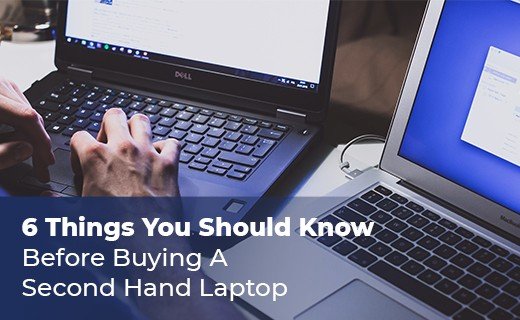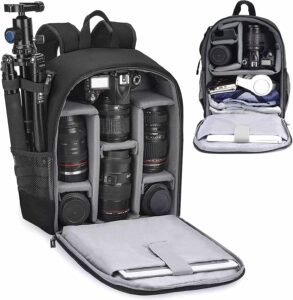When buying a Second Hand Laptop, consider the condition, specifications, age, and price. These factors will help you find the best value for your money.
In today’s fast-paced world, technology has become an indispensable part of our lives. Whether for work, school, or personal use, having a reliable laptop is essential. However, buying a brand new laptop can be quite costly, which is why many people opt for second-hand ones.
When considering purchasing a used laptop, there are several factors to take into account to ensure you get the best deal. By evaluating the condition, specifications, age, and price, you can make an informed decision and find a laptop that meets your needs without breaking the bank. This article will guide you through the essential factors to consider when buying a second-hand laptop, helping you make a well-informed purchase.

Credit: vocal.media
Assessing Your Needs
Assessing Your Needs: When buying a second-hand laptop, it’s crucial to identify your usage goals. Consider whether you prioritize portability or performance. Determine your specific needs to make an informed decision.

Credit: medium.com
Evaluating Laptop Condition
When buying a second-hand laptop, evaluating its condition is crucial. Conducting a physical inspection can help you determine if the laptop is worth investing in. Here is a checklist to guide you through the process:
| Battery Health and Performance: | Check the battery health by looking at the battery cycles. A lower number indicates better condition. Test the battery’s performance by charging it fully and seeing how long it lasts. |
Additionally, examine the laptop’s exterior for any physical damage such as scratches, dents, or cracks. Inspect the keyboard and trackpad for responsiveness. Check all the ports and connectors to ensure they are in working condition. Evaluate the display for any dead pixels or discoloration.
Furthermore, open the laptop and assess the overall cleanliness and condition of the internals. Look for signs of dust buildup or corrosion. Inspect the fan for any unusual noise or excessive heat during operation.
By carefully evaluating these aspects, you can make an informed decision when buying a second-hand laptop.
Technical Specifications Scrutiny
When buying a second-hand laptop, it is important to carefully scrutinize the technical specifications. The processor and memory requirements play a crucial role in determining the performance of the laptop. Look for a processor that is fast and efficient, capable of handling the tasks you need it for. Adequate memory is also essential to ensure smooth multitasking and efficient operation of software applications.
Another important factor to consider is the hard drive and storage space. Determine the amount of storage you require based on your needs. If you plan to store a large amount of files, such as documents, photos, or videos, a laptop with a larger hard drive or ample storage space is ideal. Additionally, consider the type of hard drive, whether it is a traditional hard disk drive (HDD) or a solid-state drive (SSD), as this can significantly impact the laptop’s speed and performance.
Smart Buyer Strategies
Purchasing a second-hand laptop requires careful consideration of various factors such as the laptop’s condition, specifications, age, and seller’s reputation. Researching and comparing prices from different sources can help you make an informed decision and save money.
| Smart Buyer Strategies |
|---|
| 1. Research the laptop model and its specifications before buying. |
| 2. Check the laptop’s physical condition, including the battery, keyboard, and screen. |
| 3. Negotiate the price with the seller, considering the age and condition of the laptop. |
| 4. Check the warranty and return policies of the seller to ensure that you have protection in case of any issues. |
When buying a second-hand laptop, it is essential to do your research to ensure that you are making a smart purchase. Start by researching the laptop model and its specifications to understand what you are looking for. When inspecting the laptop, pay attention to its physical condition, including the battery, keyboard, and screen. Negotiating the price with the seller is also crucial, considering the age and condition of the laptop. Lastly, check the warranty and return policies of the seller to ensure that you have protection in case of any issues. Following these smart buyer strategies will help you make the best purchase decision.

Credit: hbcomputerz.com
Frequently Asked Questions
What To Look For When Buying A Second Hand Laptop?
When buying a second-hand laptop, there are a few things to consider. Firstly, check the physical condition for any scratches or damages. Secondly, check the battery life and the charger. Thirdly, check the specs to ensure it meets your requirements.
Fourthly, check for any viruses or malware. Lastly, buy from a reputable seller with a return policy.
Is It Safe To Buy A Second-hand Laptop?
Yes, it can be safe to buy a second-hand laptop if you take certain precautions. Check the laptop’s condition, ask for its history, and verify that it’s not stolen. Also, ensure that it’s not infected with malware and that it meets your requirements before making the purchase.
What Are Five 5 Factors To Consider When Buying A Laptop?
Consider these 5 factors when buying a laptop: 1. Price: Find one that fits your budget. 2. Performance: Look for a laptop with a fast processor and enough RAM for your needs. 3. Portability: Consider the size and weight of the laptop for easy mobility.
4. Battery Life: Choose a laptop with long battery life to avoid frequent charging. 5. Storage: Decide on the amount of storage space you require for your files and applications.
Conclusion
Purchasing a second-hand laptop requires careful consideration of various factors. By evaluating the condition, specifications, and price, you can make an informed decision. Additionally, choosing a reputable seller and ensuring proper testing can help you find a reliable device that meets your needs.
Happy shopping!









